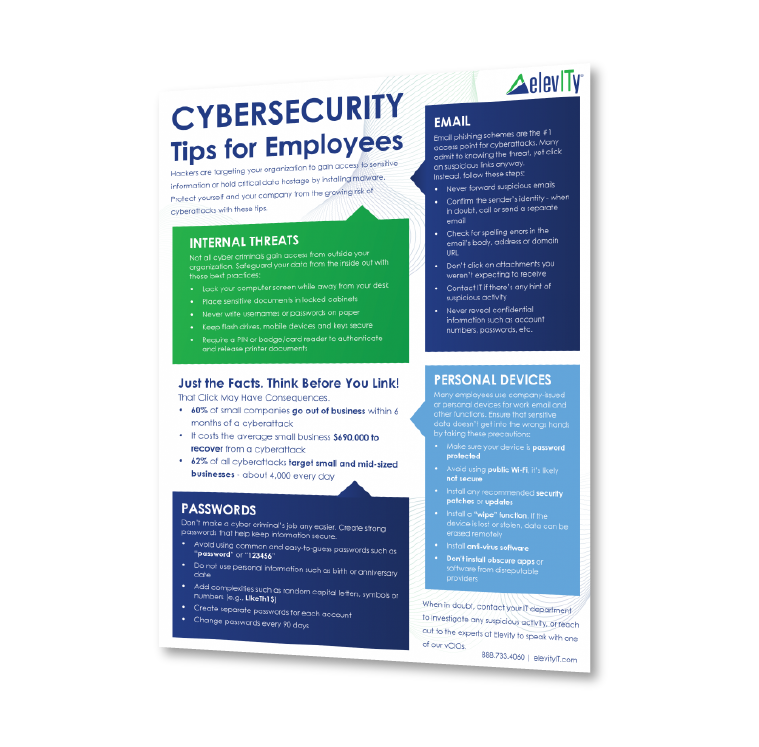Small- to medium-sized businesses (SMBs) know that having information at your fingertips and staying connected to your colleagues are key to keeping the day-to-day operations of your business running smoothly. That’s why SMBs are increasingly making the switch from traditional phone systems to cloud-based Managed Voice Services (MVS).
Gone are the days when only large organizations could access cloud-based communications systems. In fact, more SMBs are joining the hybrid workforce than ever before as MVS makes employee communication and collaboration, convenient.
Could MVS be the right choice for your business? Let’s find out!
What Is Managed Voice Services?
MVS is another name for unified communications or Unified Communications as a Service (UCaaS). MVS brings all of your business’s preferred communication channels together into a single, unified, cloud-based system that is managed and monitored by a service provider. It is a user-centric communication experience that helps bridge the gap between in-office workers, remote employees and customers – all within a single application.
A business is able to configure their MVS in a manner that best fits their communication needs. A 30-minute needs assessment is often all it takes to gather the information necessary to create a quote of tailored services.
RELATED ARTICLE: Managed Voice Services by Elevity
Features of Managed Voice Services
Cloud-based phone systems offer a host of features beyond just voice services, making them the ultimate solution for businesses looking to streamline their communications and collaboration. For example, you can enjoy:
- Video Conferencing: Host virtual meetings and presentations with ease. No more costly travel expenses or time lost due to traffic.
- Collaboration Tools: Share files, screens, and notes with colleagues in real time, no matter where you are.
- Integrated Messaging: Keep all your communication in one place, whether it’s voice, text, or instant messaging.
- IVR, or Interactive Voice Response: IVR is a feature that allows callers to interact with a computerized system to route their call to the appropriate department or extension. With a cloud-based phone system, you can set up custom IVR menus and even integrate with your CRM for a more personalized customer experience.
- Scalability: As your business grows, your phone system needs to grow with it. With a cloud-based system, you can add or remove lines and extensions as needed, without the need for expensive hardware or maintenance.
- Flexibility: With a cloud-based system, you can work from anywhere with an internet connection. Whether you’re in the office or on the go, you’ll never miss an important call.
- Cost Savings: With a cloud-based system, you don’t need to worry about expensive hardware, maintenance, or upgrades – your cloud provider takes care of it all. Plus, you can enjoy all the features you need without paying for features you don’t.
- Reliability: A cloud-based system uses VOIP (Voice Over Internet Protocol) to make and receive calls. This means that you’ll enjoy crystal-clear voice quality and reliable service, even in areas where traditional phone systems may not be available.
How Can Managed Voice Services Benefit My Business?
When your employees are communicating and collaborating more efficiently, you’ll also be elevating your customer experience. Here’s how:
1. Processes and Goals Become More Aligned
One of the primary advantages of high-level employee engagement is alignment. When people openly share ideas and regularly communicate, the group as a whole is on the same page.
For example, by conducting a daily departmental or organizational virtual meeting, your teams can discuss tasks and priorities, as well as what processes to use to address them and what the messaging should be for specific issues.
This results in a more consistent experience for customers. No matter who a customer or client talks to or which method of communication they engage with, they’ll interact with the same brand voice and receive the same response.
2. Tasks Are Accomplished More Efficiently
In a collaborative work environment, individuals can quickly contact their co-workers for help, whether they’re using instant messaging, a video call or even walking down the hall. Communication choice increases efficiency by allowing individuals the opportunity to reach out to a team member with the correct expertise and brainstorm a solution.
This also enables your entire team to complete their work faster and more efficiently, gaining additional time that can be spent engaging with customers.
3. Increases Employee Satisfaction and Engagement
When a group is open to input, individuals are more likely to speak up and feel that they are heard. As a result, they will feel more valued at work and motivated to put in their best effort. This emphasis on collaboration will also transfer as employees will project a more positive, empathetic face to customers because they themselves feel supported.
4. Fosters Innovation
Employee collaboration also fosters innovation. With a collaborative culture, individuals with varying skill sets and experience levels work together to solve problems and come up with fresh ideas. This helps the team as a whole avoid blind spots and think outside of the box in different ways. With creativity that feeds off others’ ideas, the customer stands to gain through faster, more effective solutions.
Managed Voice Services by Elevity . . . and More!
Organizations no longer need to pay for and manage multiple disparate systems for employee and customer communications. Elevate Managed Voice Services by Elevity brings it all together in a unified communications platform. Learn more about this all-in-one solution and Elevity’s managed technology services by requesting a consultation. It might be the most productive 30 minute meeting that you’ll have all week!
Think there isn’t a big difference between a robust outsourced technology management service and a traditional IT department or break-fix model? Think again. Download our infographic using the link below. We think you’ll be surprised at just how comprehensive and beneficial a technology management solution can be.








%20cropped.jpg)





